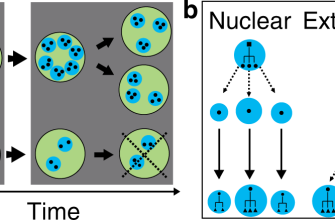10 Sustainable Household Practices for the Green Family

Living a sustainable lifestyle is not only beneficial for the environment, but it also promotes a healthier and more conscious way of living. For families who are looking to make a positive impact on the planet, adopting sustainable household practices is a great place to start. By making simple changes to our daily routines, we can significantly reduce our carbon footprint and contribute to a greener future.
1. Reduce, Reuse, Recycle: The three Rs are the cornerstone of sustainable living. By minimizing waste, reusing items, and recycling whenever possible, we can significantly reduce the amount of garbage that ends up in landfills.
2. Save Energy: Conserving energy helps reduce greenhouse gas emissions and lowers utility bills. Remember to turn off lights when not in use and unplug electronics. Choosing energy-efficient appliances can also minimize your household’s energy consumption.
3. Use Eco-Friendly Cleaning Products: Many household cleaning products contain harmful chemicals that can pollute the air and water. Switch to eco-friendly alternatives to protect your family’s health and the environment.
4. Go Paperless: Digitalize your household’s documents, bills, and subscriptions to reduce paper waste. Opt for online statements, e-tickets, and e-books whenever possible, and recycle paper products when necessary.
Remember, small changes can make a big difference.
- Unplug electronics when they are not in use to prevent them from drawing standby power. You can also use power strips with switches to easily turn off multiple devices at once.
- Invest in energy-efficient appliances, such as refrigerators, washing machines, and dishwashers, that are ENERGY STAR certified. These appliances use less energy and can save you money in the long run.
- Set your thermostat to a lower temperature in the winter and a higher temperature in the summer to reduce heating and cooling energy. You can also use a programmable thermostat to automatically adjust the temperature when you are away from home.
- Insulate your home properly to prevent heat loss in the winter and heat gain in the summer. Seal air leaks around doors and windows, and consider using insulation in your attic, walls, and floors.
- Using natural lighting whenever possible by opening curtains and blinds during the day can help reduce the need for artificial lighting and decrease energy consumption.
- Washing clothes in cold water instead of hot water can save energy. Air drying your clothes instead of using the dryer can also be more energy efficient.
- Remember to turn off lights when leaving a room, and encourage your family members to do the same. Installing motion sensor lights can also help ensure that lights are not left on when they are not needed.
- Consider planting trees or installing shading devices, like awnings or blinds, to keep your home cooler in the summer and reduce the need for air conditioning.
- Use energy-efficient window coverings, such as thermal curtains or blinds, to help insulate your home and reduce heat loss during the winter.
Conserve Water
Conserving water is an important practice for any green family. By reducing water usage, you can save money on utility bills and contribute to the conservation of this precious resource. Here are some tips for conserving water in your household:
- Fix leaky faucets and pipes promptly. Even a small drip can waste a significant amount of water over time.
- Install low-flow showerheads and faucet aerators. These devices can reduce water usage without sacrificing water pressure.
- Take shorter showers. Try to limit your shower time to five minutes or less.
- Turn off the faucet while brushing your teeth or shaving. This simple practice can save gallons of water each day.
- Collect and reuse rainwater for watering plants and washing outdoor areas.
- Run the dishwasher and washing machine only with full loads, as this will maximize water efficiency and reduce the number of cycles required.
- To minimize evaporation, water your garden in the early morning or late evening.
- Clean outdoor surfaces like sidewalks and driveways with a broom instead of a hose.
- Consider installing a greywater system to reuse water from sinks, showers, and laundry for irrigation purposes.
- Educate your family members about the importance of water conservation and involve them in implementing these practices.
- By incorporating these simple habits into your daily routine, you can make a significant impact on water conservation and create a more sustainable future for your family and the planet.
Fix leaks promptly

Leaky faucets and pipes can waste a significant amount of water, not to mention the money you’ll end up paying for it. That’s why it’s crucial for the green family to fix leaks promptly.
If you notice a leaky faucet or pipe in your home, don’t delay in getting it fixed. Ignoring the problem will only lead to more water being wasted and potentially causing further damage to your property.
First, identify the source of the leak. It could be a worn-out washer, a faulty valve, or a cracked pipe. Once you’ve identified the issue, take the necessary steps to repair it. In some cases, you may need to call a professional plumber to ensure the repair is done correctly.
Regularly check your faucets, showerheads, and pipes for any signs of leakage. Even a small drip can add up over time, so it’s important to address the issue as soon as possible. By fixing leaks promptly, you’ll not only conserve water but also reduce your water bill.
In addition to fixing existing leaks, consider installing water-efficient fixtures in your home. These include low-flow showerheads, aerators for faucets, and dual-flush toilets. These fixtures can help reduce water consumption without compromising functionality.
Remember, every drop counts. By promptly fixing leaks in your household, you are making a positive impact on the environment and saving money in the process.
Install low-flow showerheads and faucets
When installing low-flow fixtures, it’s important to also check for any leaks and repair them promptly. Even a small leak can waste a significant amount of water over time, so fixing leaks can further contribute to a sustainable household.
By installing low-flow showerheads and faucets, you can make a positive impact on the environment while also saving money on your water and energy bills. It’s a simple and effective way to practice sustainability in your own home.
Collect rainwater for outdoor use
Collecting rainwater is not only a sustainable practice but also a cost-effective way to reduce water consumption in your household. By installing rain barrels or a rainwater harvesting system, you can capture rainwater from your roof and use it for various outdoor activities.
Here are some ways you can collect rainwater:
| Method | Description |
|---|---|
| Rain barrels | Place large barrels or containers underneath your downspouts to collect rainwater. Make sure to cover them with a fine mesh screen to keep out debris and mosquitoes. |
| Rainwater harvesting systems | Install a more complex rainwater collection system that connects to your gutters and downspouts. These systems can store larger amounts of rainwater and often include filters and pumps for easier use. |
Once you have collected rainwater, you can use it for activities such as watering your garden, washing your car, or cleaning outdoor surfaces. Not only will this help conserve water, but it will also reduce your dependency on treated tap water, which often contains additives and chemicals.
Remember to check the regulations and guidelines in your area regarding rainwater collection. Some places may have restrictions or guidelines on how rainwater can be collected and used. By following these guidelines, you can ensure that you are collecting rainwater in a responsible and sustainable manner.
Collecting rainwater not only benefits the environment but also helps you save money on your water bill. It’s a simple and effective way for green families to reduce their impact on the planet while enjoying the benefits of sustainable living.



